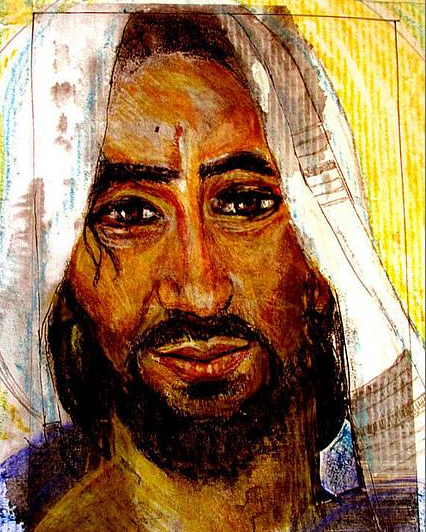Christian Art | Holy Mary | King James Audio Bible | KJV | Love Revealed By Jesus Christ
Luke 11: 27-28 – Week 27 Ordinary Time, Saturday (King James Audio Bible KJV, Spoken Word)
27 ¶ And it came to pass, as he spake these things, a certain woman of the company lifted up her voice, and said unto him, Blessed is the womb that bare thee, and the paps which thou hast sucked.
28 But he said, Yea rather, blessed are they that hear the word of God, and keep it.
The woman raises her voice to praise Mary, for Jesus’ sake. Through Jesus, the woman is moved to acclaim the holiness of Mary. It can be true to say also that very many Christians are moved to contemplate Mary through knowledge of Jesus. For many Christians, Mary is our spiritual mother. Through Jesus, we discover our relationship with Mary, and so reciprocally through Mary we discover and seek to imitate the Son.
In response, Jesus highlights Mary’s ‘Yes!’ to God. Mary said: ‘Be it done unto me according to thy word.’ Here is a model of complete humility and obedience to God.
We hear little of Mary through much of the course of the Gospels. Some of what we read may seem strange, as when Mary and Jesus’ family come to try to speak with Jesus, concerned that Jesus is mad. It is also striking when Mary seems perfectly in tune with Jesus’ mission, as for example when Jesus is on the Cross.
Such relative silence, between infancy narratives and the Cross, may be illustrative of Mary’s perfect humility. It was through this perfection that Mary conceived of the Holy Spirit the Son.
Concluding Prayer | Love Revealed By Jesus Christ
Lord God,
source and origin of our salvation,
make our lives here on earth so proclaim your glory,
that we ay praise you without ceasing in heaven.
We make our prayer through our Lord.

King James Audio Bible | Endnotes
Hail Mary, Mother Of God
The title ‘Mother of God’ is a longstanding and deeply meaningful term used by many Christians to refer to Mary, the mother of Jesus Christ. While the phrase ‘Mother of God’ does not appear in the Bible, there are many passages that support this understanding of Mary’s role in salvation history.
One such passage is Luke 1:43, in which Elizabeth, the mother of John the Baptist, greets Mary with the words: ‘And whence is this to me, that the mother of my Lord should come to me?’ (KJV) The phrase ‘my Lord’ (Greek kyrios) is a common title for God in the Old Testament, and Elizabeth’s use of it to refer to Jesus suggests that she saw him as divine. This would make Mary the mother of God in the fullest sense of the term.
Another important passage is John 1:1-14, which describes Jesus as the Word of God made flesh. Verse 14 states: ‘And the Word was made flesh, and dwelt among us, (and we beheld his glory, the glory as of the only begotten of the Father,) full of grace and truth.’ (KJV) By giving birth to Jesus, who is the Word made flesh and the only begotten of the Father, Mary can be understood as the mother of God.
The Gospel of Matthew also contains several references to Mary as the mother of Jesus, who is God in human form. In Matthew 1:23, an angel tells Joseph that the child to be born to Mary ‘shall be called Emmanuel, which being interpreted is, God with us’ (KJV). This name emphasizes the divine nature of Jesus and reinforces the idea that Mary is the mother of God.
In addition to these biblical passages, the early Church Fathers also wrote extensively about Mary’s role as the mother of God. For example, in the 2nd century, the theologian Saint Ignatius of Antioch wrote that Jesus ‘was truly born of a virgin, and was truly crucified…He was also truly raised from the dead…Mary was truly of the seed of David’ (Letter to the Smyrnaeans, chapter 1). This statement affirms both the humanity and divinity of Jesus, and by extension, Mary’s role as the mother of God.
In the 5th century, the Council of Ephesus officially affirmed the title ‘Mother of God’ for Mary, declaring that ‘the holy virgin is the mother of God, because she bore according to the flesh the Word of God made flesh’ (session 3). This council was convened to address the heresy of Nestorianism, which denied the unity of Christ’s divine and human natures, and the affirmation of Mary as the mother of God was a key part of the council’s teaching.
In more recent times, both Catholic and Protestant theologians have continued to affirm Mary’s unique role as the mother of God. The Catholic Church, for example, teaches that Mary’s ‘divine motherhood…is the source of her extraordinary dignity’ and that ‘the Church venerates her as the Mother of God, and also as Queen of Heaven and earth’ (Catechism Of The Catholic Church, paragraphs 495, 966). Similarly, many Protestant theologians, while not using the title ‘Mother of God,’ have acknowledged Mary’s special place in salvation history and her role in bringing Christ into the world.








